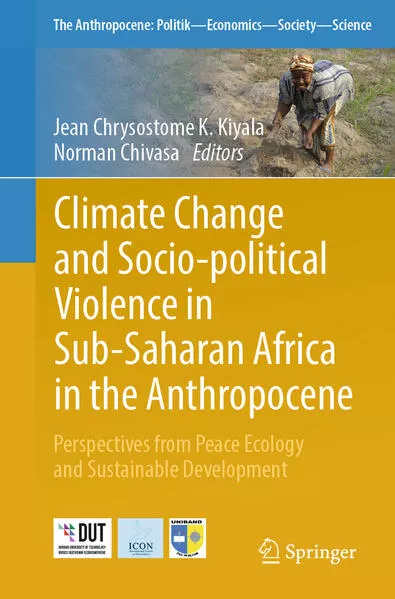
- Publikationen ca: 2
- Fragen & Antworten
Jean Chrysostome K. Kiyala
Jean Chrysostome K. Kiyala (PhD) is a Senior Lecturer at the International Centre of Nonviolence in the Faculty of Management Sciences, Durban University of Technology (DUT), South Africa; Associate Professor and visiting lecturer at the University of Bandundu, Evangelical University in Africa in the Democratic Republic of Congo, and the University of Seychelles (Seychelles). He holds a PhD in Management Sciences specialising in Public Administration: Peace Studies, from DUT. His specialisations include child soldiers, restorative justice, transitional justice, post-conflict reconciliation and nation-building, civil society, peacebuilding and peace ecology.
Norman Chivasa is currently a lecturer in the Department of Peace, Security and Society at the University of Zimbabwe after serving as a Research Associate at the University of KwaZulu-Natal and Postdoctoral Fellow at Durban University of Technology (DUT), South Africa. He holds a Masters in Conflict Resolution and Peace Studies from the University of KwaZulu-Natal, and a PhD in Management Sciences Specialising in Public Administration: Peace Studies, from DUT. His research focuses on community peacebuilding and informal infrastructures for peace
Norman Chivasa is currently a lecturer in the Department of Peace, Security and Society at the University of Zimbabwe after serving as a Research Associate at the University of KwaZulu-Natal and Postdoctoral Fellow at Durban University of Technology (DUT), South Africa. He holds a Masters in Conflict Resolution and Peace Studies from the University of KwaZulu-Natal, and a PhD in Management Sciences Specialising in Public Administration: Peace Studies, from DUT. His research focuses on community peacebuilding and informal infrastructures for peace
Climate Change and Socio-political Violence in Sub-Saharan Africa in the Anthropocene
This book explores the theoretical contribution of peace ecology to the understanding and practice of environmental and conventional peacebuilding. It integrates environmental questions and factors that drive socio-political violence and climate change-induced violence in Sub-Saharan Africa in the Anthropocene.
Climate Change and Socio-political Violence in Sub-Saharan Africa in the Anthropocene
This book explores the theoretical contribution of peace ecology to the understanding and practice of environmental and conventional peacebuilding. It integrates environmental questions and factors that drive socio-political violence and climate change-induced violence in Sub-Saharan Africa in the Anthropocene.

